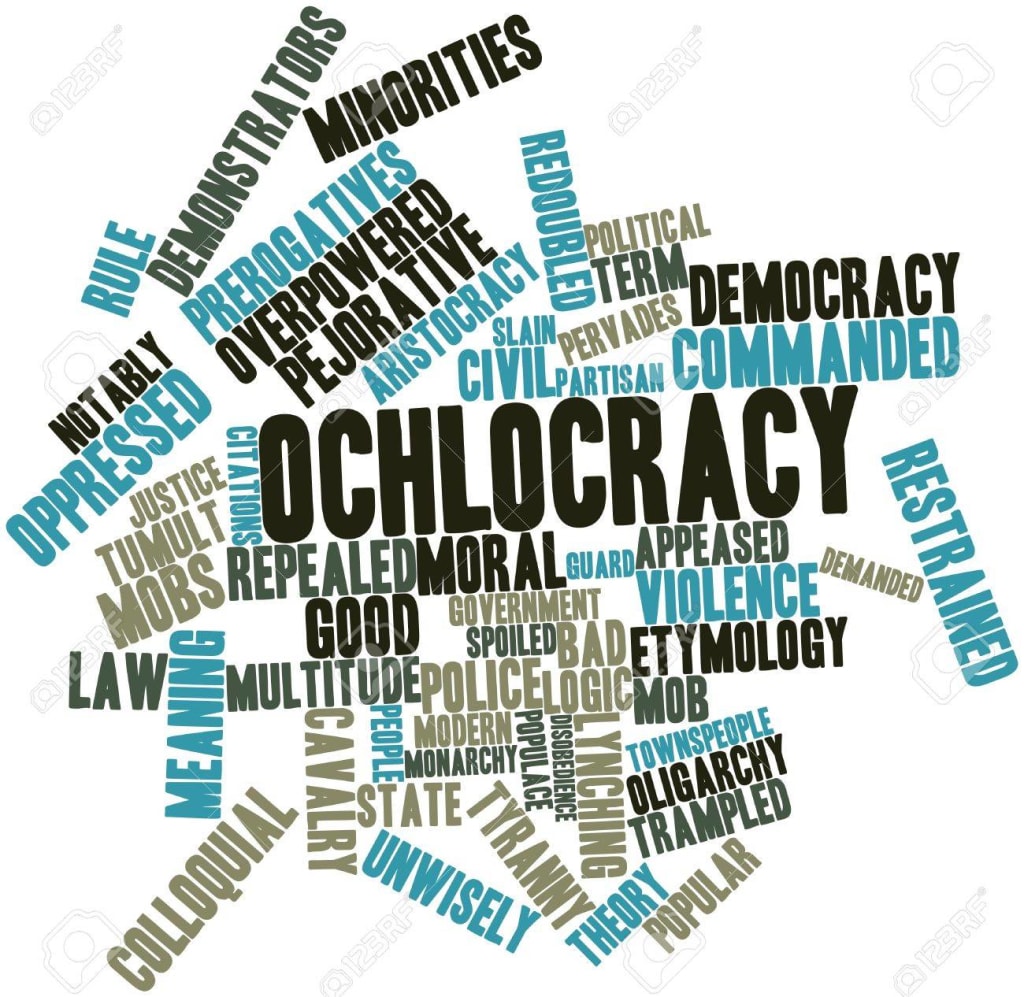
Throughout history, various societies have developed different forms of governance structures. These governance systems include concepts such as democracy, monarchy, theocracy, and more. However, one such concept that emerged particularly in ancient Greece and continues to be debated today is the notion of ochlocracy. Ochlocracy, while considered a type of democracy, is often seen as a negative derivative due to the risks it entails.
Derived from the Greek term "okhlos," meaning "the many" or "the multitude," ochlocracy signifies roughly "the rule of the many." Though similar to democracy in emphasizing the involvement and will of the people, the key distinction lies in the potential for the power of the majority to become absolute within ochlocratic systems. Thus, while democracy aims to maintain a balance between fundamental rights and freedoms alongside the protection of minority rights, ochlocracy can more easily upset this equilibrium.
One of the most notable features of ochlocracy is that it can be governed by emotional impulses and instantaneous desires of the populace. Particularly during challenging times or crises, a large portion of society can react emotionally, potentially leading to hasty decisions made without thorough consideration. This tendency can result in the neglect of long-term strategies or more balanced solutions.
The risk of neglecting the rights and interests of minorities is another significant drawback of ochlocracy. While the will of the majority is prioritized, the rights of minorities may be disregarded. This situation can exacerbate societal inequalities and unrest. Furthermore, the likelihood of populist leaders rising to power is amplified within an ochlocratic environment. These leaders appeal to the emotional responses of the people and offer simplistic solutions, often disregarding the long-term consequences. This approach can endanger the sustainability of society.
Countering the negative impacts of ochlocracy requires education, awareness, and the strengthening of democratic institutions. A educated society can think more analytically, reducing the impact of emotional reactions. Independent media and civil society organizations can also play a vital role by monitoring the activities of leaders and decision-makers, thereby maintaining a balance.
In conclusion, ochlocracy is a type of governance that emerges from an extreme application of democracy. However, it presents risks such as the potential for emotional decisions, the neglect of minority rights, and the rise of populist leaders. Combating ochlocracy requires education, awareness, and robust democratic institutions. The healthiest form of governance remains one that respects the rights of the majority, while safeguarding minority rights and maintaining justice through a balanced democracy.
About the Creator
Cafer AKTAY
Passionate blog writer with a love for words and a curiosity to explore diverse topics. I aim to engage, inspire, and offer fresh perspectives on various subjects. Let's embark on this literary journey together! 📚✍️
Enjoyed the story? Support the Creator.
Subscribe for free to receive all their stories in your feed. You could also pledge your support or give them a one-off tip, letting them know you appreciate their work.
Reader insights
Outstanding
Excellent work. Looking forward to reading more!
Top insights
Expert insights and opinions
Arguments were carefully researched and presented
Eye opening
Niche topic & fresh perspectives






Comments (1)
This was eye-opening. Thank you!